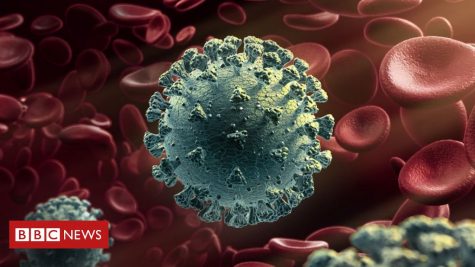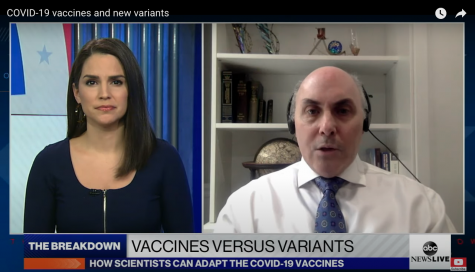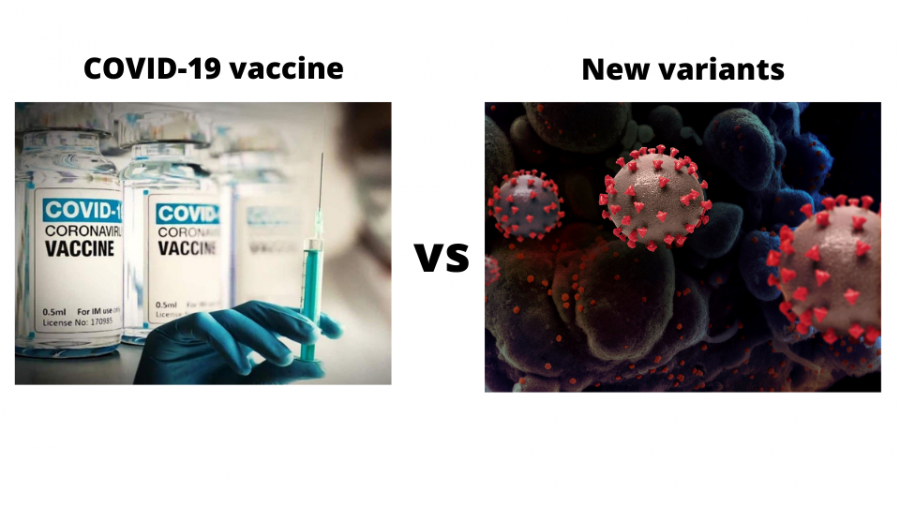COVID-19 Vaccines vs New Variants
COVID-19 vaccine versus New variants of the virus from UK, South Africa, and Brazil
February 5, 2021
On December 14, the first of 2.9 million COVID-19 vaccine doses were shipped out to the United States. Just as the vaccines were being given to the citizens, a rapid spread of a new variant from the United Kingdom came out.
According to BBC News, it is rapidly replacing other versions of the virus and some of those mutations have already been shown in the lab to increase the ability of the virus to infect cells.

The first US cases of the UK variant were first identified in Colorado. These infections were shortly followed by ones in California. In the first week of January, New York and Georgia also reported cases.
A new strain also emerged from South Africa. It has proved to be far more transmissible. Scientists do not believe it is deadlier, but more people can get infected and this could mean more serious infections and more fatalities.
The strain was detected in the US a few days ago in South Carolina. Two people were infected but they didn’t travel to South Africa and were not related either.
Brazil comes with another new variant after these two separate mutant strains of the virus. The National Institute of Infectious Diseases (NIID) said it was difficult to immediately determine how infectious this new strain is and the effectiveness of vaccines against it.
The new variants of COVID-19 raised questions and caused doubts over the efficiency of the vaccine. What do scientists say about this? The scientists have said that they would try to make the necessary tweaks in the Coronavirus vaccine in about six weeks to make them effective against the new strains of the virus.
Stuart Ray, M.D. of John Hopkins Medicine said, “There is new evidence from laboratory studies that some immune responses driven by current vaccines could be less effective against some of the new strains. If there would ever be a major mutation, the vaccine development process can accommodate changes, if necessary, but we’re not yet at the point when we need to consider that.”
Scientists at Moderna Inc. and Pfizer Inc., whose shots have been approved in the United States, have said that their vaccines appeared to be somewhat less powerful against the new strain in preliminary laboratory experiments, but that they still expect them to work.

Yesterday at ABC news, Dr. Drew Weissman, a Professor of Medicine at the University of Pennsylvania said, “Both Moderna and Pfizer are already working on a potential booster vaccine that will cover the South Africa and other variants.”
High school student Jorgette Silva stated that this is a reminder that we should be more cautious with our actions and a call to practice safety measures more seriously.
I asked Silva if he believes that the vaccines would still work against the new variants despite what was said by the makers of the vaccine. “I would give the vaccine companies the benefit of the doubt. But even though a vaccine already exists, we should still be careful, as they say, it’s better to be safe than to be sorry.”
Another high school student, Andrea Ventura, shared her thoughts on the news. She said, “This is scary news, this means that our situation has become worse. Having this said, now is the time to be a lot more alert with our actions.”
I asked her the same question I asked Silva. “Since there is no proof that declares the vaccine as a fail, I would believe that it is working. However, it doesn’t mean that we will stop being cautious. So let us not relax and think that the vaccine has already fixed everything, we are far from that, but we will reach that as long as we do our part,” Ventura delivered.
Given these new variants, let us continue to keep our distance from people outside our household, wear a mask, and avoid crowds.


